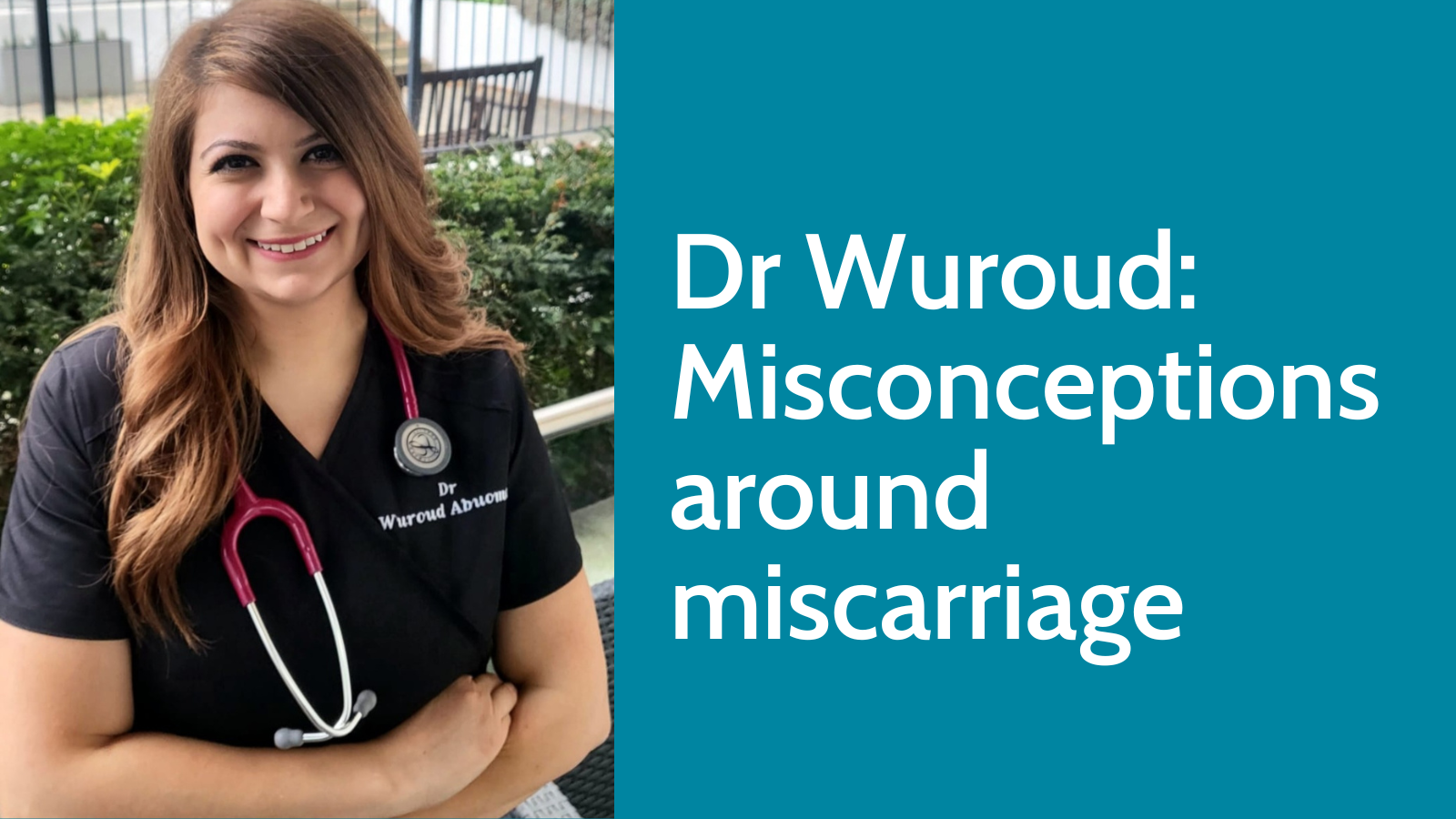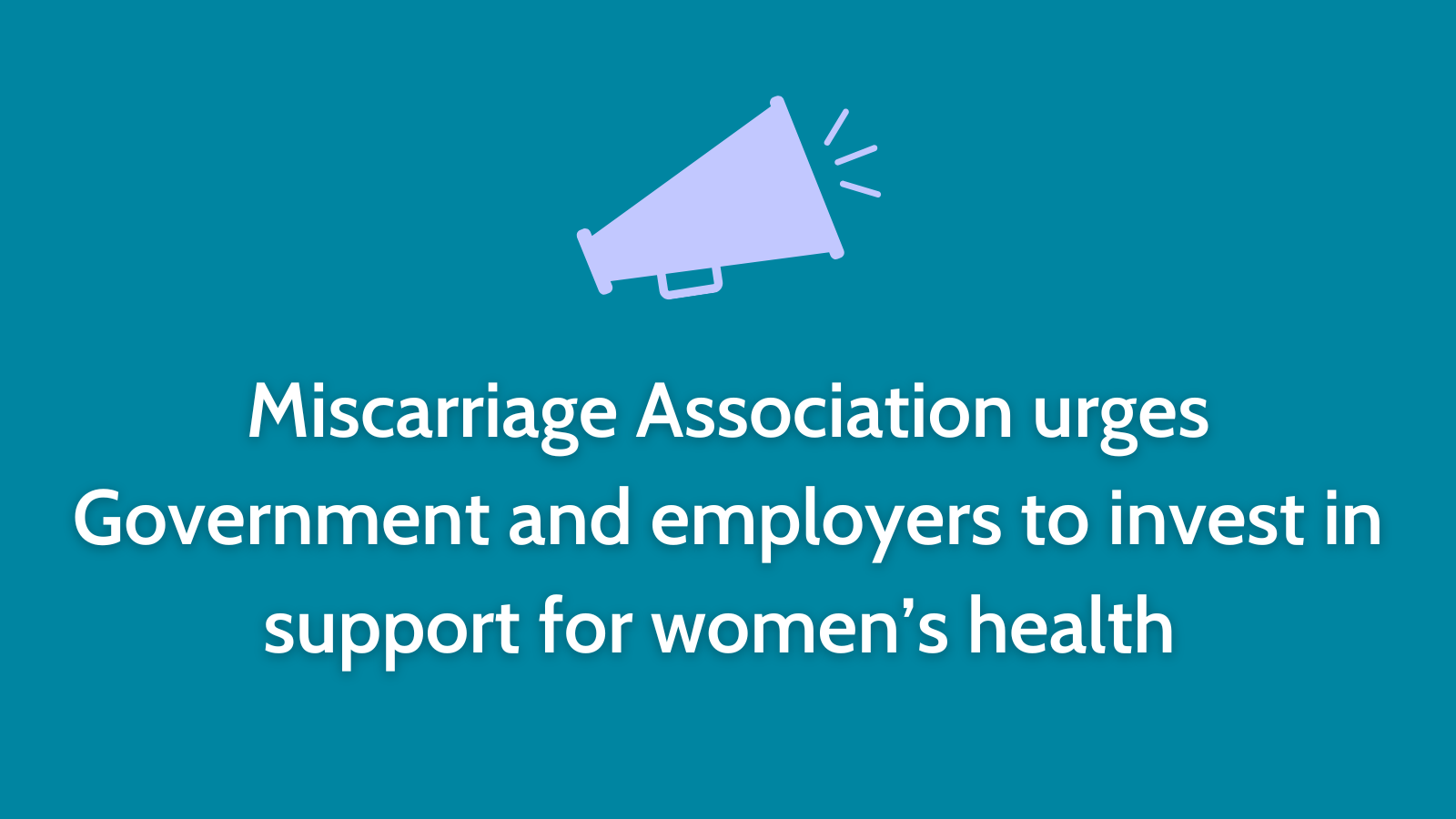Dr Wuroud: Misconceptions around miscarriage
6th February 2025

How do we start talking about baby loss, whether a miscarriage, a molar pregnancy or ectopic pregnancy? Are there any words that can describe the overwhelming emotions associated with it?
Probably not, but after seeing hundreds of patients who present to me after losing a baby, I have come to realise that some knowledge can be really empowering to demystify miscarriage, highlight its common causes, and help people to come to terms with their loss. They will still grieve but they will also get some relief.
Here are a few statements from my patients that probably caused them added stress, guilt and isolation and how I feel we can best tackle them:
“It must be something I have done”
It is almost always the first thing I hear from my patients. It is natural to think it might be your fault when you cannot find the exact cause but rest assured that it is almost never your fault.
The majority of the time, we cannot find the exact cause. Early miscarriages are usually due to problems with either the unborn baby (fetus) when the embryo receives too many or not enough chromosomes (structures inside our cells that carry genetic information) at the point of conception, for unknown reasons, resulting in miscarriage. There can be structural problems with the placenta (which is the organ linking your blood supply to your baby’s) can also result in miscarriage.
These are unlikely to recur in a subsequent pregnancy.
“It happened after I received my flu vaccine”
We still see a lot of fear surrounding vaccines, but there is no evidence that links vaccinations to miscarriage. The public health authorities in the UK recommend that every pregnant woman has the flu jab, whooping cough and Covid-19 vaccinations, and ensure they have rubella immunity (please note you will not be offered the rubella vaccine whilst pregnant).
On the contrary to the above misconception regarding vaccines, they can actually provide protection for you and your baby against those infections that could lead to serious complications if caught during pregnancy, such as a severe chest infection that can lead to pneumonia, this can be particularly difficult to treat in the second and third trimesters. Becoming very unwell with flu in pregnancy can potentially lead to rare complications such as miscarriage, premature birth and stillbirth.
“Did my previous abortion cause this miscarriage?”
Generally speaking, having had a previous abortion (when performed safely by a medical professional) does not significantly increase the risk of miscarriage in subsequent pregnancies.
The link between a previous abortion and the risk of miscarriage in future pregnancies has been studied extensively over the years, and there is no definitive conclusion. The risk of a future miscarriage can sometimes vary depending on the type of abortion, the number of procedures, and any individual health factors. The main concerns arise from potential complications like infection, womb scarring, or trauma, which are fortunately rare with modern medical or surgical abortion.
If you have any specific worries following an abortion, always consult your doctor who will be able to discuss any risks with you.
“Should I have stopped running?”
Exercise, lifting or working during pregnancy and any associated normal day-to-day stress (as opposed to extreme persistent stress) is absolutely not linked to miscarriage.
“My partner didn’t carry the baby, they will not understand my grief.”
While the pregnant person bears the physical experience of miscarriage, partners are often deeply affected. They may feel powerless to help, lonely and unsure of how to express their own grief, particularly if they feel the need to remain the “strong” one. Open communication between partners about their feelings, understanding each other’s needs and recognising that you are both grieving in your own way is vital. Many find it helpful and feel less lonely when they know that their partners are feeling the same way.
“I am not well, but I am not ‘sick’ either, so I cannot take time off from work.”
Many of my patients feel conflicted about taking sick leave after a miscarriage. Miscarriage can take both a physical and emotional toll, so giving yourself time for recovery to regain your strength is crucial for your overall well-being (just as you would take time off for any other health-related issue!).
You might find it takes some time to recover from the experience of your loss. You might be experiencing grief, sadness, anxiety or perhaps PTSD (post-traumatic stress disorder), and these can take some time to process, so be gentle on yourself. Time off can be useful in allowing yourself to grieve and process the experience, as well as the emotions pregnancy loss can bring with it. If you find yourself struggling with your mental health, do get in touch with your GP.
You may also be going through physical symptoms such as bleeding, fatigue, loss of appetite and hormonal changes, so taking time off is an act of self-care that you should not need to justify.
If after your return to work, you are struggling to cope, try speaking to your employer for a more flexible return, or speaking to a therapist. Some workplaces offer employee assistance programs (EAP) that include counselling services, which can provide additional support during this time.
________________________
Read more on this topic in ‘Why Me?’.
You also might find out Workplace resource hub useful, where we have lots of guidance and resources around returning to work, your rights as an employee, and how to navigate conversations with your employer.
If you’re looking for someone to listen, please know our support services are here for you.

